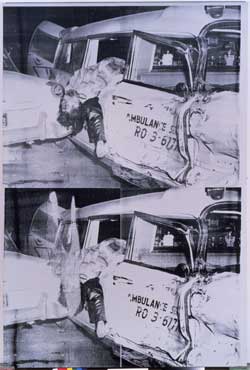
By Corey Dargel
In the first essay from The Invisible Dragon, Dave Hickey argues that arbiters and artists care too much about the meaning of art and not enough about whether it gives us pleasure. His focus is on visual art:
Since pleasure is the true occasion for looking at anything, any theory of images that is not grounded in the pleasure of the beholder begs the question of art’s efficacy and dooms itself to inconsequence… If [images] only do things after we have talked about them, then they aren’t doing things, we are. [p. 2]
However, Hickey believes that beautiful works of art tend to use their beauty to persuade us. They make something strange look beautiful, in order to seduce the viewer into accepting and ultimately appreciating what is portrayed. The artwork’s power comes not from criticizing the mainstream–which only acknowledges the mainstream’s importance and ghettoizes the artist–but from celebrating the margins of society, and doing so “persuasively, powerfully, and beautifully.” [p. 15]. Of Robert Mapplethorpe’s pornographic photographs (NSFW), which inspired the essay, Hickey writes:
A single artist with a single group of images had somehow overcome the aura of moral isolation, gentrification, and mystification that surrounds the practice of contemporary art in this nation and directly threatened those in actual power with his celebration of marginality… It was the celebration… that made these images dangerous. [p. 14]
Can Hickey’s argument be transplanted from the genre of visual art to the genre of music? I am skeptical but anxious to be persuaded. The problem, it seems to me, is that instrumental music is too abstract to “celebrate the margins of society” in a way that would be apparent to all listeners. Music that relies on text has an easier time celebrating the margins–songs by The Smiths and operas by Robert Ashley come to mind–as does music that interacts with other disciplines like Meredith Monk’s Ellis Island. Are we allowed to take the artist’s biography and background into consideration, for example in the cases of Arthur Russell, Harry Partch, and Julius Eastman?
Tell me if I’m missing something: Can you think of any music that celebrates the margins, that makes something strange seem beautiful, without resorting to textual or visual elements, and without requiring a knowledge of the composer’s or performer’s biography?
* Andy Warhol, Ambulance Disaster, 1963-64. Founding Collection, The Andy Warhol Museum, Pittsburgh


